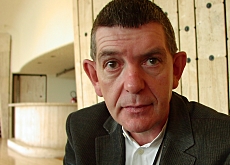Last-minute negotiations aim to save summit

Unresolved squabbling at the final preparatory meeting in Geneva before the World Summit on the Information Society (WSIS) has forced two sets of extra talks.
It is hoped that an intersessional gathering in Geneva and a so-called Resumed PrepCom-3 immediately before this month’s summit in Tunis will resolve key stumbling blocks.
Like the first phase of WSIS in Geneva in 2003, PrepCom-3 came to an unsatisfactory end on September 30 with serious divisions between main players and no clear solution in sight.
After the final plenary session, Yoshio Utsumi, secretary-general of WSIS, said the unresolved issues were “a testament to delegates’ refusal to compromise on the principles they believe to be fundamental to promoting access to information and communication technologies”.
The main unresolved issue was internet governance. The United States, in the face of pressure from the rest of the world to loosen its grip on the internet, dug its heels in and said the subject wasn’t up for negotiation.
Sub-committee A from PrepCom-3 will now meet in Tunis on November 13 and spend three days hammering out some sort of compromise on how the internet should be policed before the summit proper begins on November 16.
Sub-committee B met in Geneva on October 24-28 to try to resolve everything else, notably the implementation and follow-up of the action plan and the wording and financial mechanisms of the political document.
Internet governance
“I think internet governance will be the only interesting discussion at the summit,” Julien Pain, head of internet freedom at Reporters Without Borders, told swissinfo. “And it will actually take place before the summit!”
Pain said Reporters Without Borders was banned from the first phase in Geneva in 2003 because it was judged to have criticised countries such as Libya, China and Cuba too harshly, but he hopes to make the most of the summit in Tunis.
“I think it will be a good arena for us to tell the world that countries such as China, Cuba, Iran – and Tunisia – shouldn’t be able to say what the future of the internet should be,” he said.
But Pain said he was not restating the American position that was generally seen as causing the Resumed PrepCom in the first place.
“We’re not supporting the American position because other countries should be involved in the management of the internet – at least as much as the Americans – it’s a worldwide tool,” he explained.
“But we believe that the situation now is better than if control of the internet was given to China or Cuba. Until someone comes up with a workable solution regarding internet governance, it’s better that the situation remains as it is.”
Big risk
The pressure for results in Tunis – at the Resumed PrepCom as well as the main summit – is huge. There won’t be another summit in two years, like the Geneva intersessional one, to mop up the fall-out from any political brinkmanship.
Many observers have said that if the next ten days do not produce any meaningful outcomes and follow-up structures, a major historic chance will have been lost.
And the chances of success? “To be honest, I don’t think anything will really happen – the US is not ready to negotiate,” said Pain. “And that’s the big risk: if they don’t agree to discuss with the rest of the world, then they could lose the management of the internet.
Marc Furrer, president of the Federal Communications Commission and head of the Swiss delegation to the WSIS, is more optimistic and is confident that all parties will get down to high-level discussions in Tunisia.
“But why go through all these PrepComs if you only get to the meat three days before the summit?”
swissinfo, Thomas Stephens
The third meeting of the Preparatory Committee (PrepCom-3) of the Tunis phase of the WSIS was held in Geneva, from September 19-30, 2005.
The WSIS is due to be held in the Tunisian capital, Tunis, from November 16-18.
The aim of the summit is to bridge the digital divide between rich and poor nations, as well as tackle issues such as internet governance.
Some 11,000 delegates from governments, UN agencies, private sector organisations, civil society and media and more than 50 heads of state are expected to attend.
PrepCom-3, the summit’s final preparatory meeting, ended on September 30 but disagreements over main issues meant another couple of pre-summit sessions have had to be arranged.
A Resumed PrepCom-3 will take place in Tunis three days before the summit and will focus on internet governance.
An intersessional negotiation group met in Geneva from October 24-28 to discuss everything else, including the implementation and follow-up of the action plan and the wording and financial mechanisms of the political document.

In compliance with the JTI standards
More: SWI swissinfo.ch certified by the Journalism Trust Initiative













You can find an overview of ongoing debates with our journalists here . Please join us!
If you want to start a conversation about a topic raised in this article or want to report factual errors, email us at english@swissinfo.ch.